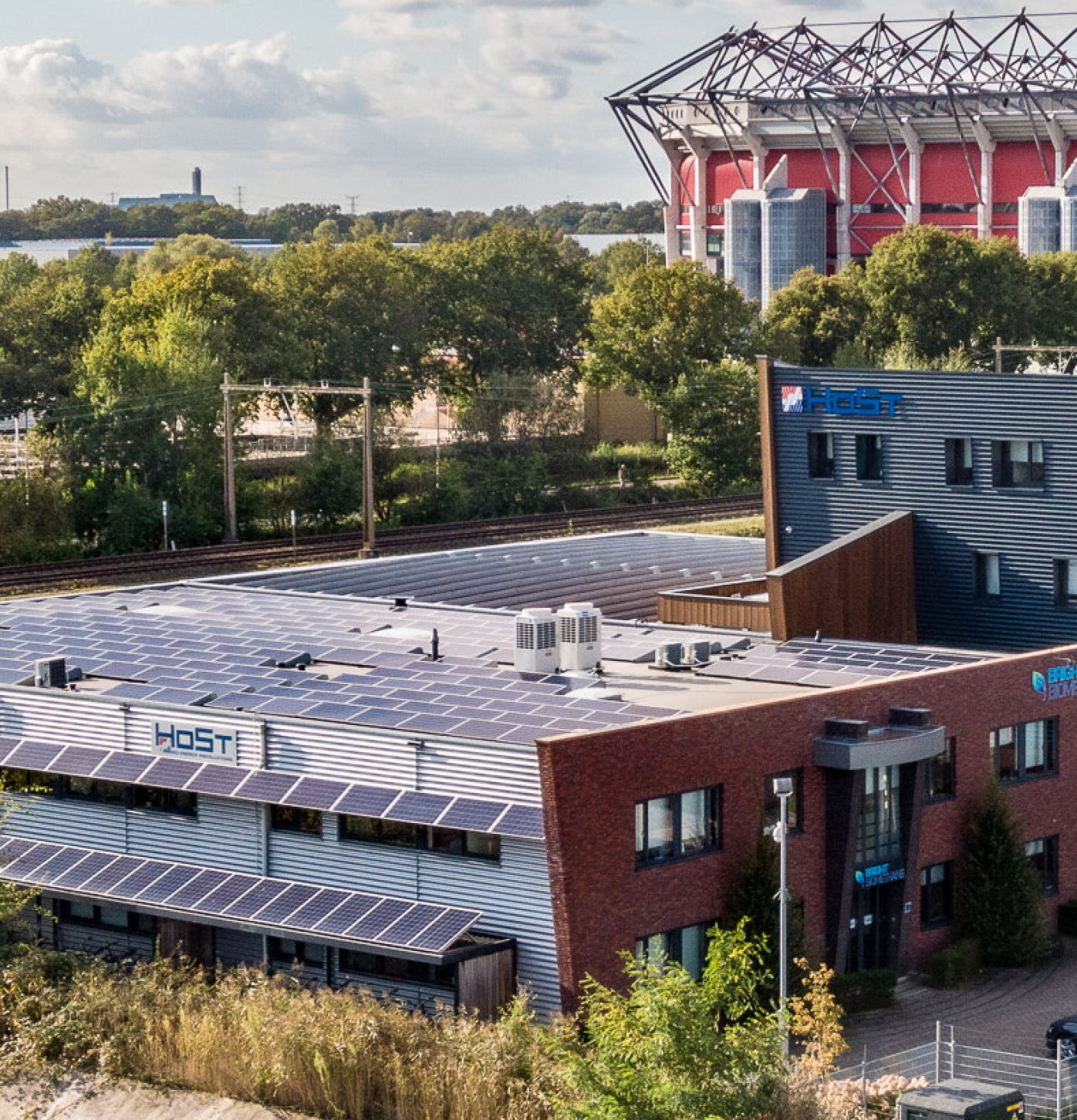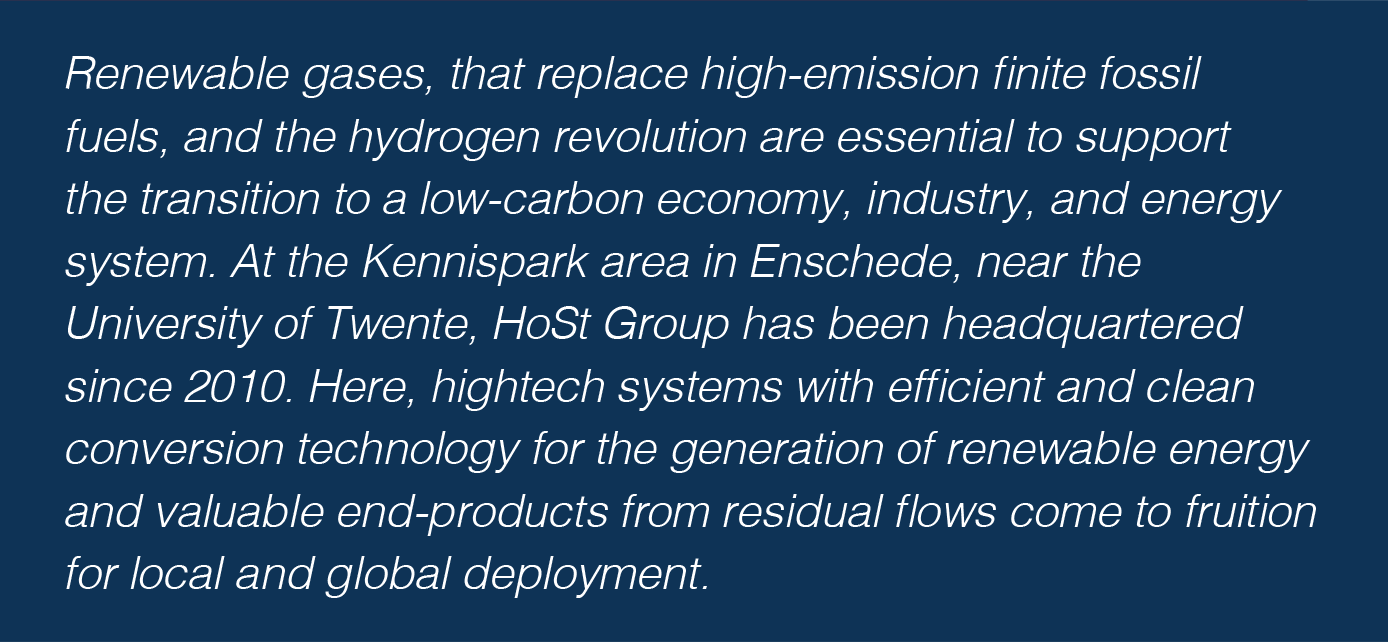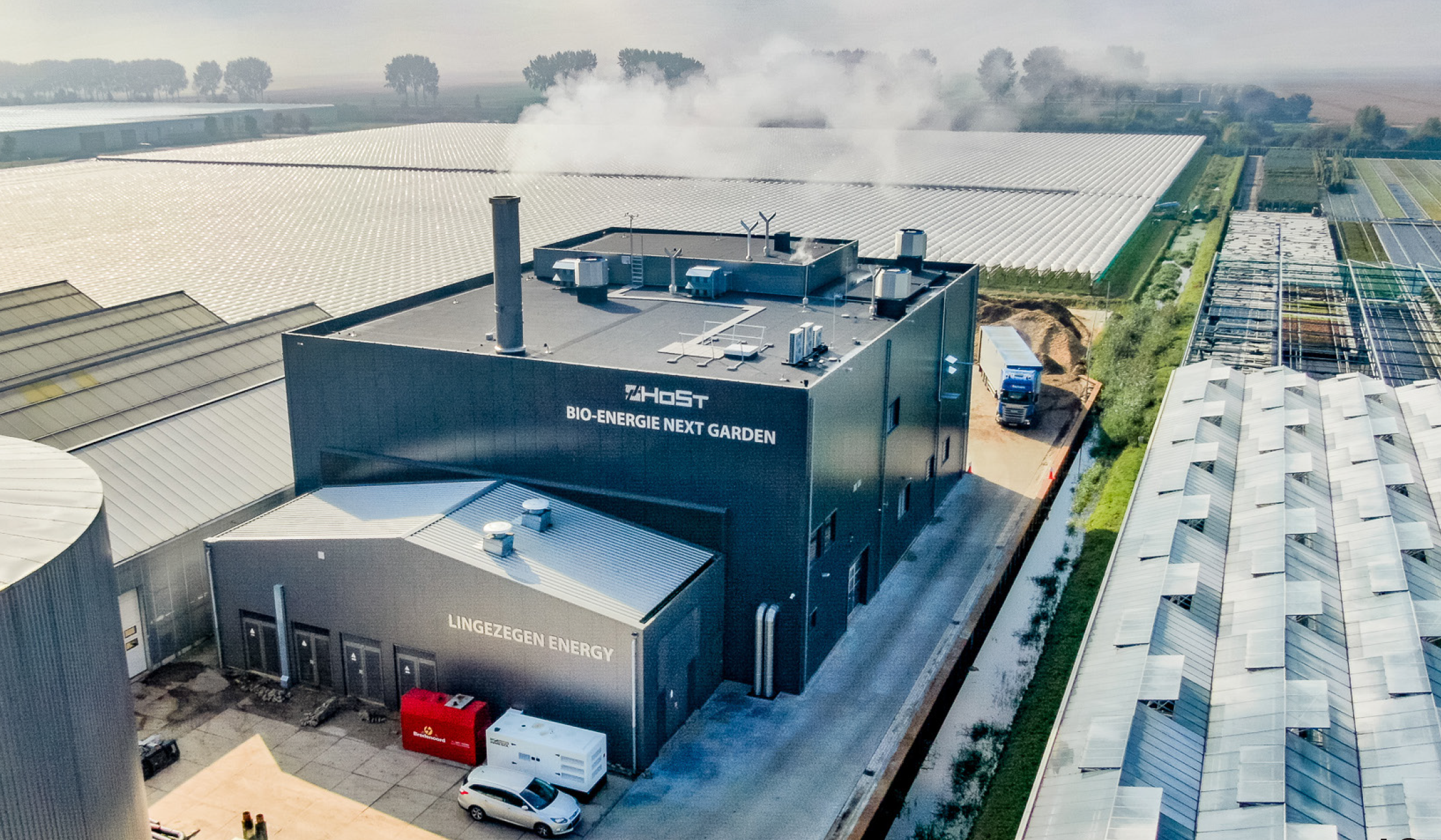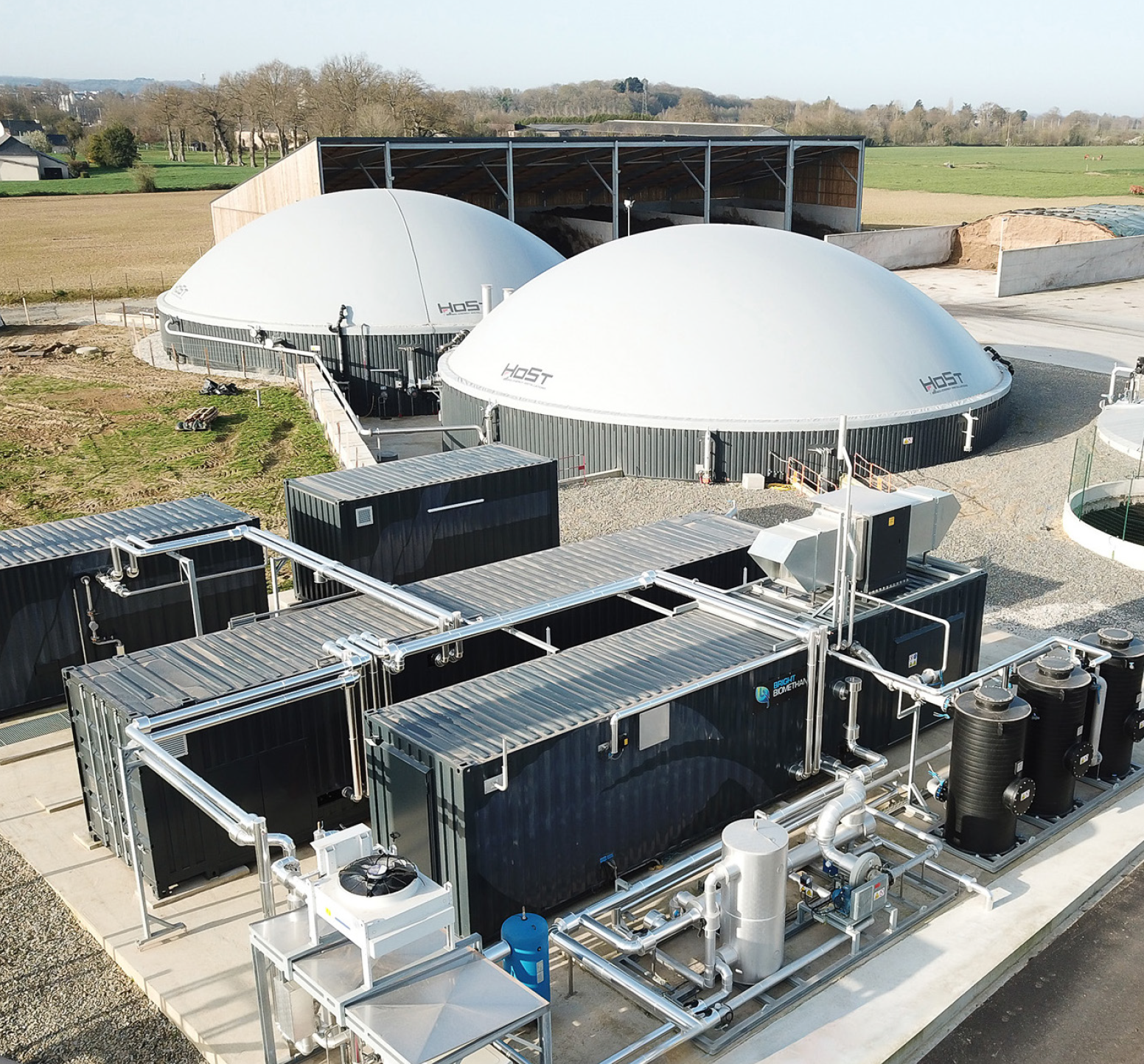Pioneering and boosting the sustainable energy transition with technology synergy



The large and fast-growing family company, founded in 1991, is committed to be at the forefront of a circular decarbonised economy by deeply investing in technology. Evidenced again by the latest acquisition of a specialist hydrogen company that
further enhances the full proprietary technology suite across renewables gases, renewable heat, and renewable electricity. These technologies include anaerobic digestion, upgrading of biogas to biomethane, CO2 capture and CO2 liquefaction and bio-LNG, and renewable heat and electricity through thermal conversion of wood waste, RDF, and waste.
Clean energy technology synergy
HoSt expanded and bolstered its renewable gases technology portfolio by adding hydrogen technology to the portfolio through acquisition of the company HyGear, completed early February this year. The Arnhem, Netherlands-based company is a global market leader in small scale on-site industrial hydrogen generation systems. This combination fuels future growth for both companies, drives the energy transition, and creates strong commercial, technological, and knowledge synergy.
Jelle Klein Teeselink, CEO at HoSt Group comments: “Combining these companies lead to a unification of proprietary, complementary energy technology resources, driving the decarbonization and energy transition. It establishes a fundamental knowledge base, empowerment, and pathway for the vital acceleration of renewable gases and renewable hydrogen development and deployment across different markets and geographies. It also provides us with a strong footprint in Asia through their location in Singapore. At HoSt, we are thrilled and look forward to the strategic fit that amplifies the mission of both companies.”
Renewable natural gas (green gas), produced from organic waste by means of anaerobic digestion and biogas upgrading, can be converted to renewable hydrogen providing hydrogen with a carbon negative footprint.
Greening the region & beyond
Carbon-neutral and carbon-negative clean energy technologies provide in decentralized renewable gas, renewable heat, and renewable power generation, contributing to the diversification of energy sources which is more important than ever, everywhere.
Anyone passing by the Royal Grolsch beer brewery in Enschede has in all probability already seen the new installation. This biomethane system, built by HoSt, purifies the biogas from the brewery’s wastewater to produce renewable natural gas, also
known as biomethane. Biomethane is a sustainable substitute for fossil natural gas and is added to the existing natural gas network. Annually, this results in 1,800 tonnes of CO2 emission reduction. HoSt owns and operates the plant in an ‘energy as a service’-model. In Zenderen, also in the Twente region, HoSt built a biogas upgrading plant for Twence, the local waste management company.

“The government has ambitious goals for the production and use of biomethane to increase independence from natural gas imports, among other things. The scalable, clean and economically efficient technology to achieve this is already available and smaller regional projects like this will be needed and most certainly contribute to the goals,” says Jelle.
Due to the war in Ukraine, the Ukrainian energy system is damaged more and more each day. Nowhere is it clearer than diversification of Russian gas and energy security is urgently needed. HoSt recently built a biogas plant in Ukraine, is currently realizing a second one, and builds three biogas upgrading projects in Ukraine. Small steps at a time, these installations provide renewable energy to local people and fight against a complete energy blackout.

Outside of Europe, the United States has a large market for renewable natural gas projects. HoSt is constructing three new biogas plants at dairy farms in upstate New York and in Ohio. Together, these biogas plants produce the equivalent of running 3,000 US family cars on the clean fuel bio-CNG for a year. With many dairy projects located in the Mid-West of the United States where winter weather can be severe, it is extremely important to design with this in mind. Innovations for the US market include a heat recovery technology ensuring significant reductions in gas utilization for heating.
Clean thermal energy conversion
Energy prices are soaring and energy scarcity is increasing day by day. On top of this, the industry sector, such as greenhouses and the paper and packaging sector, needs clean and efficient energy to increase energy security and independence. A ready-to-use and feasible solution to tackle the problem for industrial heat and electricity consumers are medium-sized combined heat and power (CHP) plants, fired with locally sourced wood waste (biomass) or refuse derived fuel (RDF).
At a paper and packaging factory, HoSt is now building a 15MW combined heat and power plant that will combust RDF. Approximately 50% of the natural gas consumption of the factory will be replaced with renewable heat.
By utilizing waste streams as an useful resource, available in abundance worldwide and otherwise have no other purpose, these type of cogeneration plants can serve as a future-proof and sustainable solution to high prices for fuel, heat, and electricity. Pre-pandemic heating and electricity prices are therefore achievable.
Strong research & development
With a strong in-house research and development team, the technologies to promote renewable energy are innovative and improved continuously. After a decade of research and development on the technology of thermal conversion to produce renewable heat and electricity, the firm realized the cleanest industrial cogeneration plant in the Netherlands, fired with locally produced wood waste. “The R&D effort resulted in the cleanest wood-fired heat and power plant on the market in terms of emissions and efficiency and, through its modularised and standardised design, enabled significantly lower costs than other plants in terms of construction speed and compactness.”, says Jelle Klein Teeselink.
With over 400 employees across 7 offices, including in the US, France, Latvia, Poland and the UK, the team pioneers and boosts the vital acceleration of renewable energy development and deployment worldwide. Jelle: “The year 2022 was an unprecedented year for the renewable energy sector, for the world and the HoSt Group. We keep on building towards a better and cleaner world and are full of green energy”.